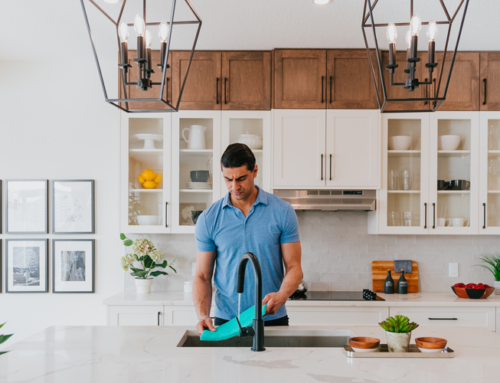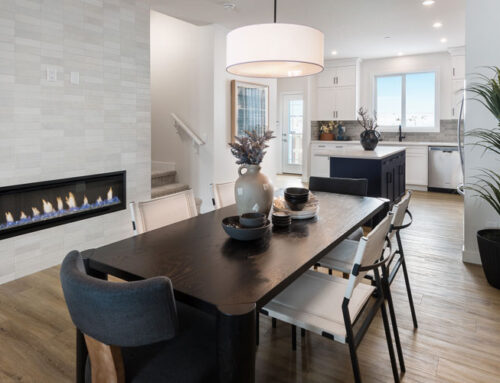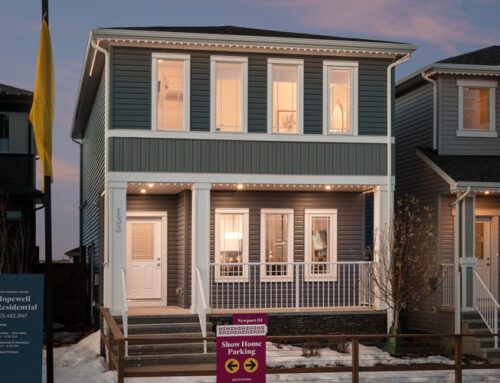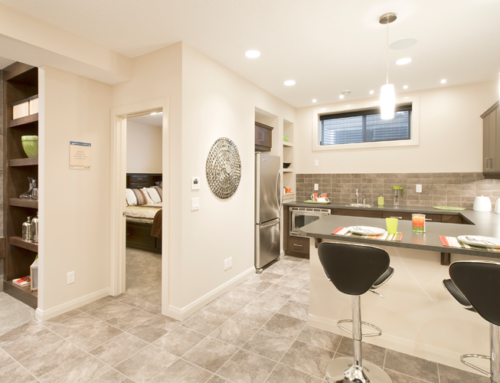 Does your once spacious home feel cramped? Are you tripping over toys or finding it hard to get a few moments of solitude? If you’ve come to the conclusion that you’ve outgrown your current home, what should you do?
Does your once spacious home feel cramped? Are you tripping over toys or finding it hard to get a few moments of solitude? If you’ve come to the conclusion that you’ve outgrown your current home, what should you do?
Before you do anything, the first step is to do some research. Naturally, you want a new home that has all the features your family needs. However, before you jump into making a purchase, it’s important to learn more about your current situation, so you can start to make some informed decisions. By really thinking about what your family needs, you can avoid buyer’s remorse. Building a new home is an important decision, and you want to be sure to get it right.
Consider a few of the following points before you begin searching for a new home.
1. Check Your Credit History
Your credit score determines the rate you pay on your mortgage. Even a small mistake on your credit report can make a big difference in your score and the interest rate you’ll be offered. Before you apply for a new mortgage, you want to review your report. In particular, look for signs of fraud, such as accounts you didn’t open, and reporting errors, such as a company failing to update your new credit limit. In most cases, a phone call or letter can resolve these issues.
2. Determine a Budget
Many Canadians make the mistake of letting the bank determine their budget for a new home. Banks decide how much to loan you based on your income and debt, but they don’t always factor in all of your other expenses. For instance, if you’re paying an additional $500 a month on your kids’ sports activities, borrowing at the upper limit of the bank’s offer may cause your family to struggle financially. Instead, it’s smarter to determine a target mortgage payment that’s affordable for your family. Remember to factor in additional expenses like increased energy costs, lawn maintenance costs, or commuting costs.
3. Get Pre-Approved for a Mortgage
Though you may have a figure in mind, you’ll need to get a mortgage pre-approval from the bank. This shows that you’re serious and they will give you a firm figure. Sometimes, the amount that you think you can afford is actually more than the bank will loan you. With the pre-approval, you can get more serious about home shopping and get a better idea of what kind of house you can afford.
Mortgage Tip: If you have a low interest rate on your current home, you may want to look into mortgage portability. Some lenders may be willing to assist you in transferring your existing rate, which can save you money in the long-term.

4. Consider Locations
The location of your home can have a big effect on the quality of your life. For instance, even the most perfect home will start to lose some of its shine if you are facing a long commute. That’s hours of your life each day spent driving! Now that your family is a bit more settled, you can look for a neighbourhood that best suit your lifestyle.
Many families consider education options for their children, commute time, and the proximity of after-school activities as they decide on the ideal location for their next home. If your child would thrive at a school that specializes in sports or has advanced academic placements, you might want to live near those schools. If he or she is going to spend 10 hours a week at hockey or gymnastics practice, you want to live near those locations as well. Think about all of these things as you make your decision.
5. Look at Various Communities
Even when you have a general idea of where you want to live, it’s a good idea to take a tour of the different communities in that area. Some might have larger lot sizes or be in areas with plenty of green spaces. Some communities are almost full and have limited lot selection. Others might be located in a new development with plenty of lot choices but a lot of construction work. As you tour various communities, try to imagine what your family’s life would look like if you lived there.
6. Make a New Home Wish List
With all of this other research under your belt, you’re able to start getting a lot more specific about what your family needs in a home. Think about how many bedrooms you need and what other types of living spaces you want in the home. Plan for storage and look at different floor plans to find a good ‘flow’ that fits your family. Some families prefer homes with open layouts so that everyone feels connected while others prefer homes with a lot of separate rooms for privacy.
Think also about where in the community you want to live. Speak to community specialists, like an Area Manager, about which lots your ideal floor plan can be built on. You can also plan some of the fun things at this stage, like wall colours and floor types. With this list in hand, you are better able to assess whether or not a particular builder can suit your needs.
Once you’ve done all of this, you’re ready to start shopping for your new home. Check out a variety of builders to find one that’s going to be able to deliver on all of your needs. Look at the style and the quality that each builder provides. When you do this, you’re likely to find one builder that stands out among the rest.
{{cta(‘2327cbe1-7451-482f-94f8-91393add41e0′,’justifycenter’)}}





